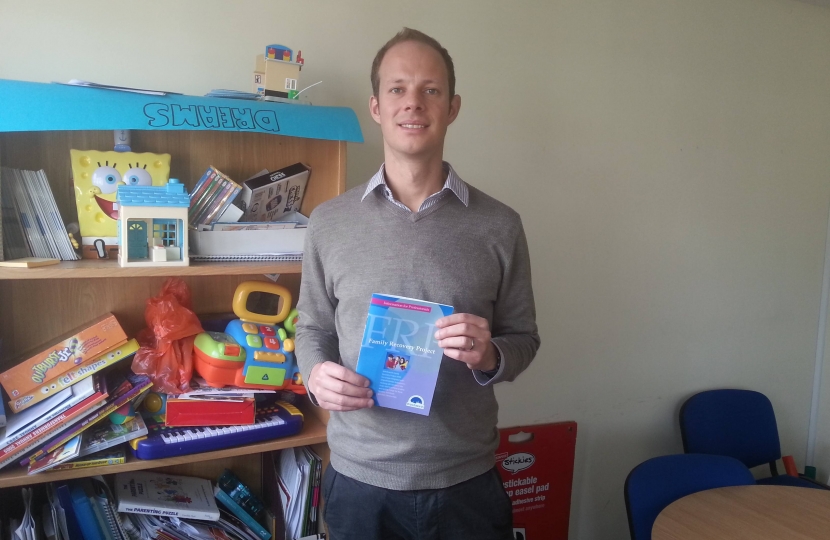
Among those local people recognised in the Queen’s New Year Honours list for 2014 was Michelle Harris, the head of the Family Recovery Project at Wandsworth Council. I wrote to Michelle to congratulate her on being awarded an MBE and for the excellent results her team are achieving. Following that, I was pleased to have the chance to visit the team last week and see first-hand the excellent work they are doing for the community.
My wife is a social worker and works with some very disadvantaged families in London, so I already had an insight into the critical role that social services play. The Family Recovery Project (FRP) was initiated by the Conservatives in 2011 as a new approach to provide intensive support to the nations most troubled families - those who face multiple problems and are already well known to the authorities.
The FRP has an innovative way of working with families, using a ’multi-agency’ approach to support and help bring about positive change for them. These families will often have a history of offending behaviour, drug or alcohol abuse, worklessness and poor school attendance. The multi-agency approach means professionals with specialist expertise in parenting, mental health, substance misuse, job-finding and benefits combine as a team to help the 30 Wandsworth families being supported at any one time.
The contact with each family is intensive, recognising that a highly structured, ‘tough love’ approach, implemented over 12 months, is needed to turn these lives around and provide a path out of poverty and towards independence. So FRP workers will often arrive at the family home at 7 a.m., wake everyone up, help the parents prepare breakfast and dress the children, then get them to school on time. Data is shared between team members so that everyone becomes aware of incidents of truanting, anti-social behaviour, drug-taking, or other problems, so that the underlying issues can quickly be addressed. Over time, the family becomes more and more empowered and able to function on its own.
During the visit I met housing officers, experts in addiction, police officers, employment specialists and health workers. All of them told me how beneficial it was to be able to work together in a relatively small team, removing the communication and data-sharing problems that previously existed when different silos of professionals became involved with a family facing multiple challenges.
I also appreciated hearing the stories of how the team had worked intensively with individuals to address their gambling addictions, resolve their housing problems or successfully support them in finding employment. Across the board, the team are determined to make an impact and have an inspirational leader in Michelle to help them achieve this.
As someone with a liberal disposition, I’ve given a lot of thought to the very ‘hands-on’ model employed by the FRP and whether this level of intervention is justified. But following my visit I am convinced that it is the right approach. As a consent-based model, the families do agree in advance to the programme. Also, it is clear that there comes a time for the members of a troubled family when their lives have becomes so chaotic that the negative ramifications for them and society as a whole do require the state to intervene.
And the approach works. Over 200 families who have completed the programme have had their lives turned round – a hugely impressive 68% success rate. This is not only fantastic news for the family members, but also for the broader community. It is also self-funding, since each success saves the taxpayer an estimated £29,000pa.
So I’m delighted that the Government made the funding available in 2011 to pilot this fantastic initiative in Wandsworth, such that Michelle’s team have been able to help 600 local families. While the Conservative are undoubtedly the party of economic competence and financial responsibility, I’m proud that we have also pioneered new ways of delivering public services to help the most needy in society, and provide a sustainable route out of poverty.
If you are interested in reading more about the Family Recovery Project, more information is available here.
